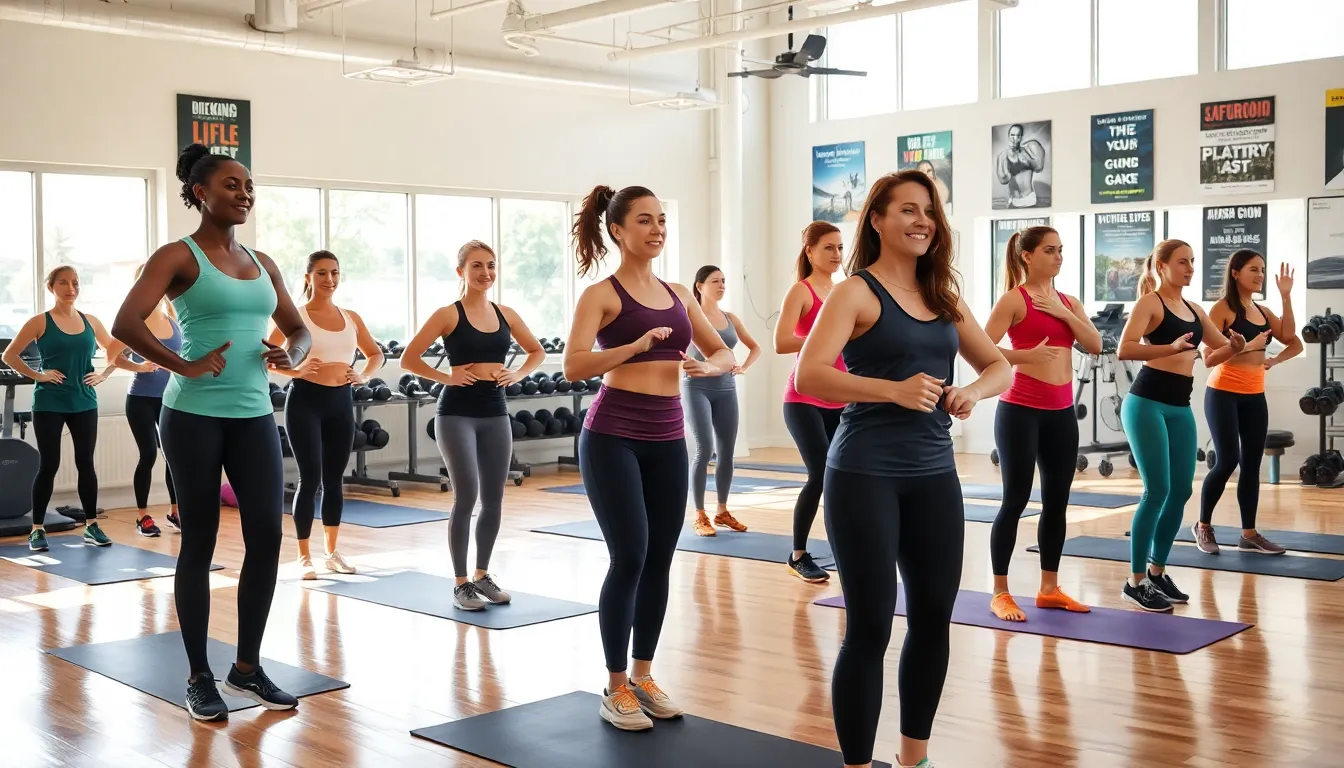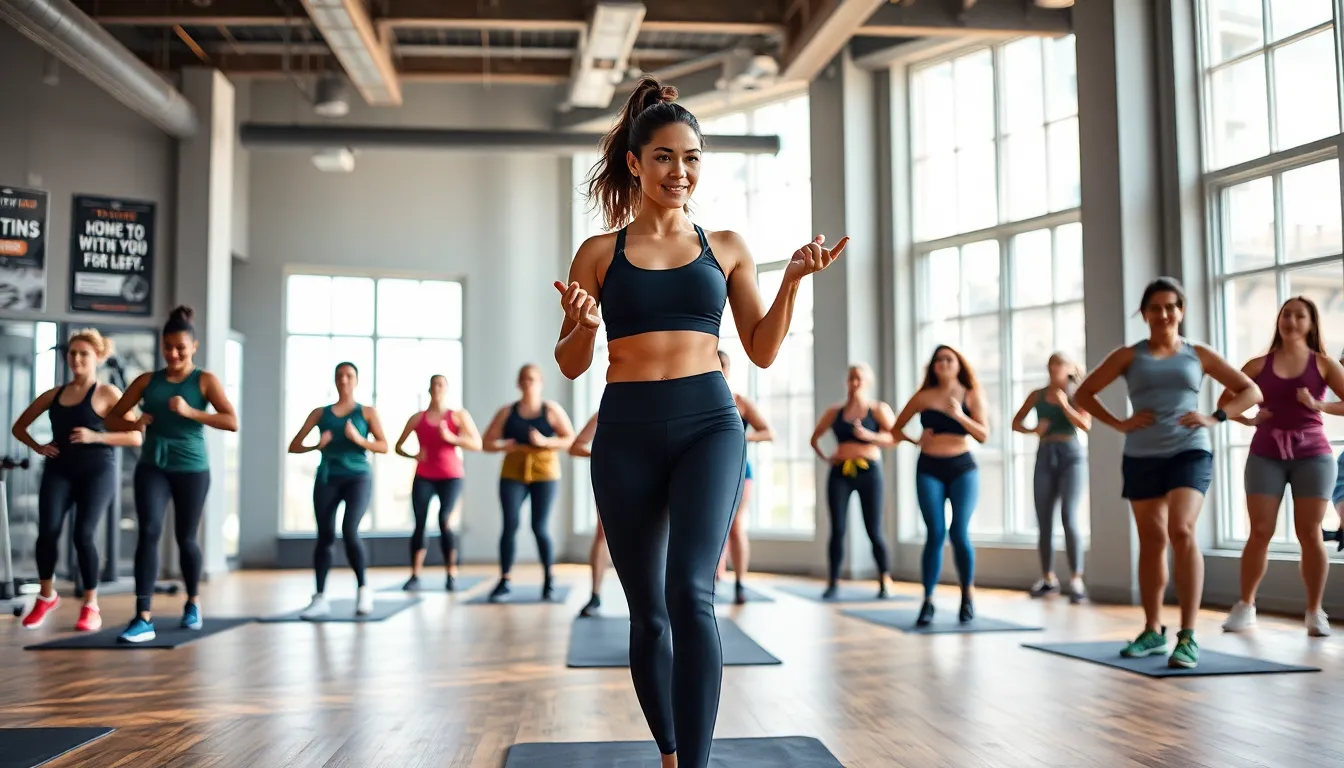Ever thought about the endless sweat, laughter, and sometimes that outright ludicrous dance move that defines a fitness instructor’s life? While it might seem like just routine glutes and gains, embarking on a journey of fitness instructor training is a chance to shape lives, including your own. After all, everybody’s got that friend who can’t hold a plank to save their life, and guess what? You could be the one to save them. So buckle up and get ready to explore the exciting world of fitness instructor training, it might just be the career change you never knew you needed.
Table of Contents
ToggleUnderstanding the Role of a Fitness Instructor

A fitness instructor wears many hats, think of them as a mentor, motivator, and sometimes even a therapist. They’re not just there to bark orders: they’re the guiding light in the often-treacherous waters of health and fitness. An instructor’s primary role is to lead clients through workouts while ensuring safety and effectiveness of the exercises. They analyze clients’ fitness levels, design personalized programs, and, above all, keep spirits high, because, let’s face it, no one looks forward to breaking a sweat if it’s a total drag. Beyond the physical aspect, they help cultivate a supportive community that encourages each individual to reach their personal best.
Key Qualities of an Effective Fitness Instructor
Being a great instructor goes beyond gym knowledge: it’s about connecting with people. Here are some essential qualities of an effective fitness instructor:
Passion for Fitness
A genuine love for fitness shines through and can energize a class like nothing else.
Communication Skills
Clear, concise instructions are vital. No one wants to figure out a squat while hearing a complex lecture.
Empathy and Patience
Understanding that all clients are unique in their challenges makes an instructor relatable.
Adaptability
Class dynamics can change quicker than a playlist switch, so a great instructor keeps things fresh and exciting.
Professionalism
From punctuality to appearance, a professional demeanor instills trust and respect among clients.
Overview of Fitness Instructor Training Programs
Diving into fitness instructor training programs is akin to stepping into a smorgasbord of options. Typically, these programs cover essential cardiovascular and strength training methods, nutrition basics, and anatomy. Most training programs are structured to provide both theoretical knowledge and hands-on practical experience.
Types of Programs
Short certification courses can last anywhere from a few weeks to several months, while more comprehensive programs offer advanced specialties in yoga, pilates, or group fitness. The choice eventually depends on the individual’s career goals, some may wish to dabble in various areas, while others may want to specialize.
Also, online platforms have emerged, providing flexibility for those balancing jobs with education. Distance learning has become particularly popular, fitting snugly into busy lifestyles, enabling aspiring instructors to learn at their own pace.
Certification Options for Fitness Instructors
Certifications are much like golden tickets for fitness instructors, they open doors and validate expertise in the field. Here’s a look at some of the top certification options available:
National Academy of Sports Medicine (NASM)
Well-known for its evidence-based approach, NASM focuses on functional training and corrective exercise methods.
American Council on Exercise (ACE)
ACE covers a wide array of topics, ensuring a well-rounded education that prepares instructors to tackle diverse fitness environments.
National Strength and Conditioning Association (NSCA)
NSCA is recognized for its science-based education, particularly valuable for instructors focusing on performance training.
Specialized Certifications
There are also specialized options for yoga, pilates, and other fitness modalities. These certifications cater to niche markets and allow instructors to offer unique classes.
Essential Skills Developed During Training
Fitness instructor training isn’t just about understanding exercise movements: it’s a holistic journey into skill development. Here are some key skills that instructors hone:
Continuing Education and Professional Development
The fitness industry is like a treadmill, it never stops moving. As trends evolve, so do the needs of clients. Hence, continuing education plays a crucial role in a fitness instructor’s career.





